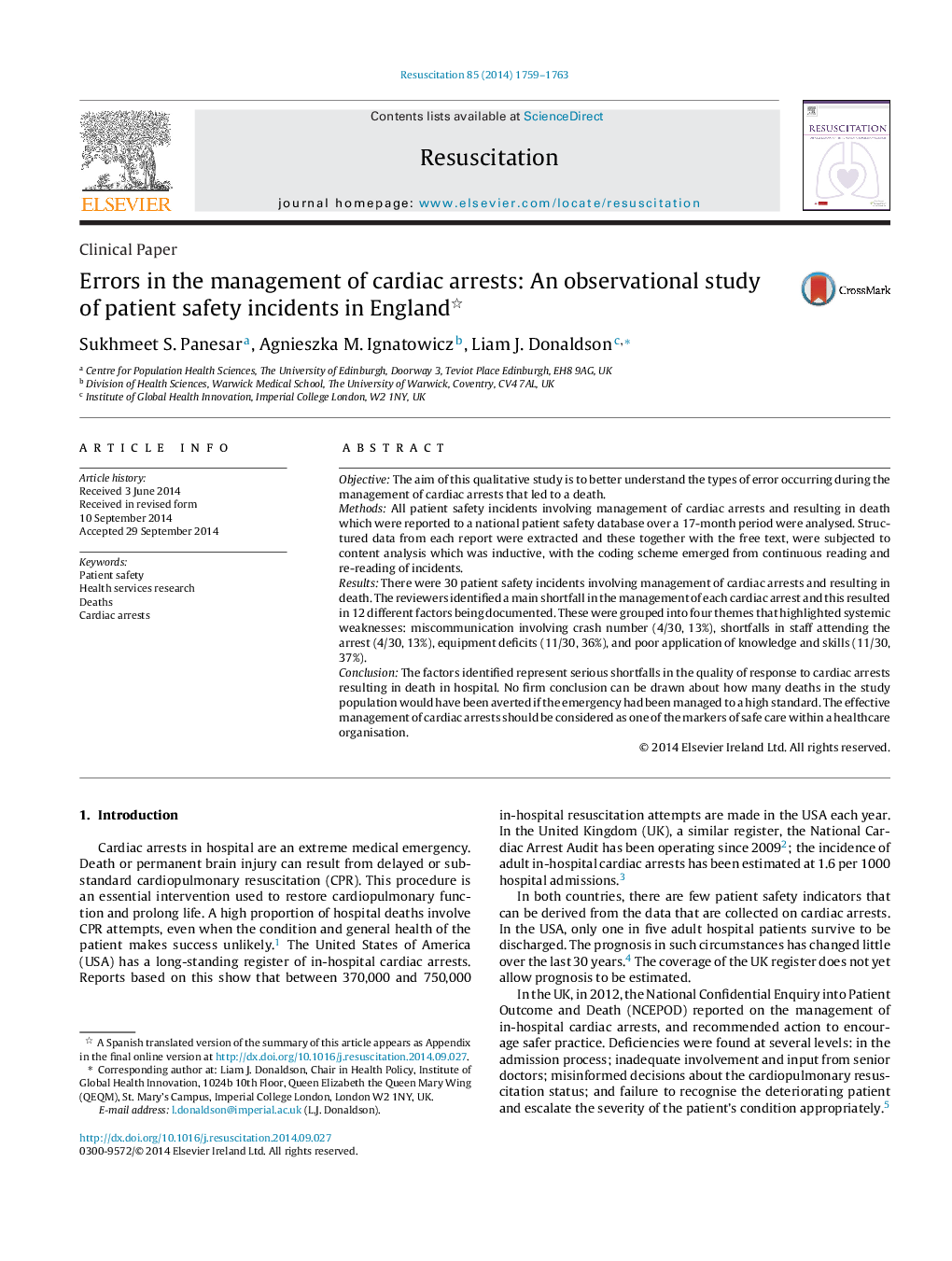| Article ID | Journal | Published Year | Pages | File Type |
|---|---|---|---|---|
| 5997907 | Resuscitation | 2014 | 5 Pages |
ObjectiveThe aim of this qualitative study is to better understand the types of error occurring during the management of cardiac arrests that led to a death.MethodsAll patient safety incidents involving management of cardiac arrests and resulting in death which were reported to a national patient safety database over a 17-month period were analysed. Structured data from each report were extracted and these together with the free text, were subjected to content analysis which was inductive, with the coding scheme emerged from continuous reading and re-reading of incidents.ResultsThere were 30 patient safety incidents involving management of cardiac arrests and resulting in death. The reviewers identified a main shortfall in the management of each cardiac arrest and this resulted in 12 different factors being documented. These were grouped into four themes that highlighted systemic weaknesses: miscommunication involving crash number (4/30, 13%), shortfalls in staff attending the arrest (4/30, 13%), equipment deficits (11/30, 36%), and poor application of knowledge and skills (11/30, 37%).ConclusionThe factors identified represent serious shortfalls in the quality of response to cardiac arrests resulting in death in hospital. No firm conclusion can be drawn about how many deaths in the study population would have been averted if the emergency had been managed to a high standard. The effective management of cardiac arrests should be considered as one of the markers of safe care within a healthcare organisation.
